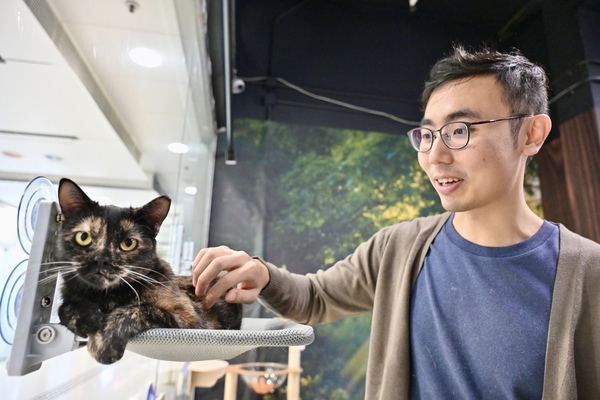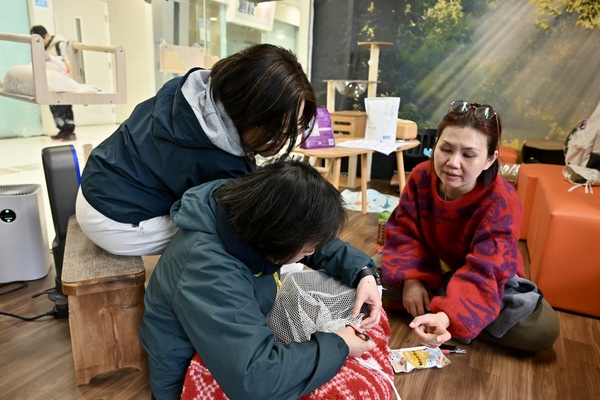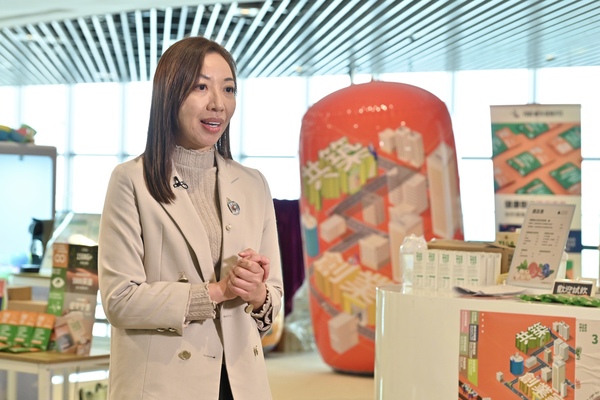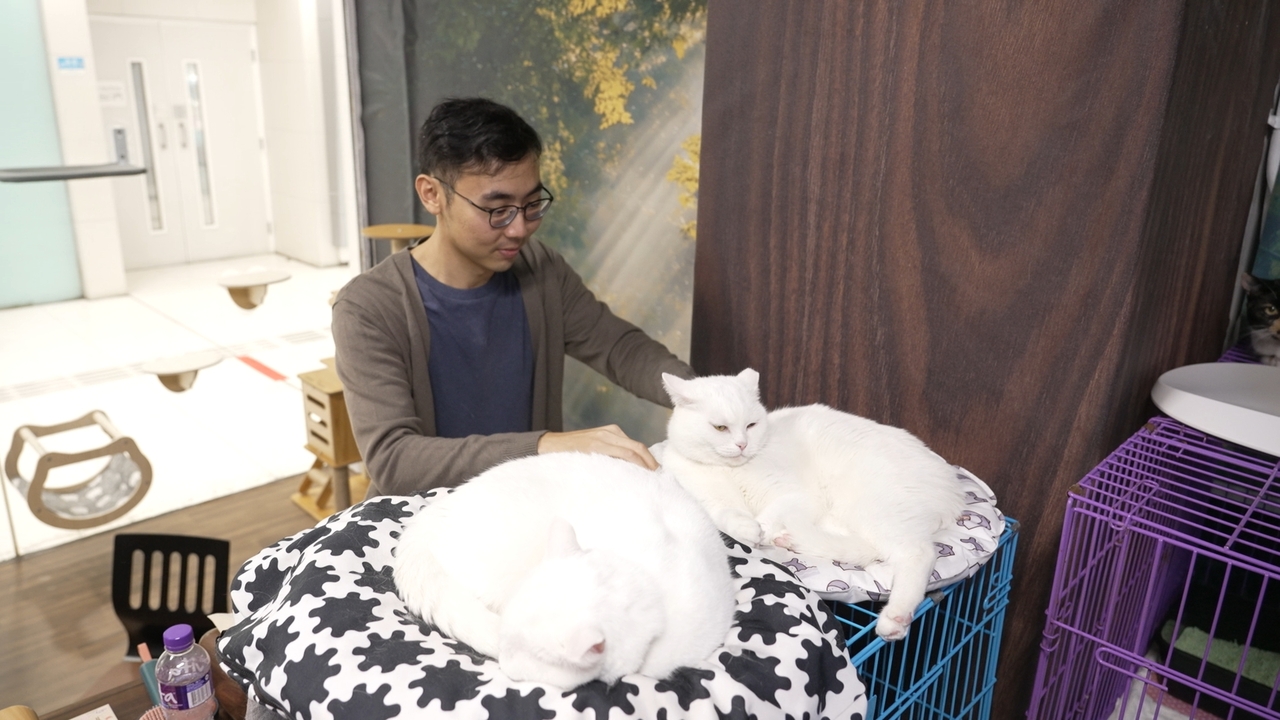Young entrepreneurs revitalise retail
The “experience centre” operated by Raymond Yam and his partner in a government shopping centre is not what you would typically expect to find in such a location. Motivated by their desire to reshape perceptions of stray animal adoption, it is not quite a pet shop and not quite a cat café. It facilitates cat adoptions and hosts workshops aimed at educating the public about responsible pet ownership, but also allows customers to play board games while interacting with the centre’s feline residents.
Changing perceptions
The workshops, promoting cat welfare, are run in collaboration with veterinarians and animal care instructors.
“We want to develop a sense of responsibility in children,” said Mr Yam. “We will teach them how to interact with cats and the importance of caring for animals.”
Challenging misconceptions about the adoption of strays is also a key focus. “Most people think adopting stray or abandoned cats is unappealing,” Mr Yam explained. “After they come here and see our cats, they think they are just great and they even forget they were once strays.”
Overcoming obstacles
Mr Yam’s entrepreneurial journey has not been straightforward. For years, his plans to start a business focused on helping stray cats were hindered by financial constraints. The turning point came when he applied to the Housing Authority’s Well Being·Start-Up programme.
“The major difficulty that we faced was the pressure of rent,” Mr Yam recalled, adding that this concern was addressed directly by the programme. “This project is different from other incubation programmes. They provide a rental space rather than financial support, and I think this is a great idea for us to try different kinds of business.”
Strategic initiative
Targeting individuals aged 35 or below, the Well Being·Start-Up programme seeks to revitalise vacant retail spaces in government shopping centres, while fostering youth innovation.
Housing Department Chief Estate Surveyor/Commercial Properties Evelyne Fung described the programme as a “win-win” solution. She explained that a challenging retail environment of late has resulted in rising numbers of vacant shops in shopping centres on government estates. The department perceived that this presented an opportunity to help young people launch new businesses in empty retail spaces. “Instead of reletting them for those traditional trades such as grocery shops or pharmacies, we might take this chance to introduce some new image and new elements into our shopping centres.”
Comprehensive support
Participants in the programme receive more than just retail spaces. The scheme provides mentorship from experienced business owners and offers essential shop renovations. “For example, we provide air-conditioning, we provide carpeting and basic wall-painting for the shops, so that the young people can start their business very shortly as soon as they get the shop,” Ms Fung outlined.
Having received positive feedback from residents in participating housing estates, the department is now exploring the possibility of inviting private developers and shopping centre owners to join the programme.




